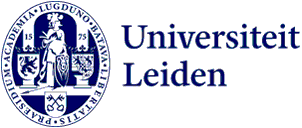Lecture
ASCL Seminar: Roadblock Politics - Predation and Resistance in Central Africa
- Date
- Thursday 24 February 2022
- Time
- Address
-
- Room
- 104

This event will take be held both online and physically in Leiden. All registrees will receive a link to the online platform one day before the start of the event.
Along the muddy roads and forested rivers snaking through Central Africa, rebels and soldiers, traditional authorities and civil servants, erect roadblocks where they deploy the threat of violence to impose their will on passersby. There are, in fact, so many roadblocks in Central Africa that it is hard to find a road that does not have one. Peer Schouten has mapped over a thousand of them in the Democratic Republic of Congo (DRC), Central African Republic, and South Sudan. In his talk, Schouten will present the main findings of his book Roadblock Politics: the Origins of Violence in Central Africa (Cambridge University Press, 2022), which argues that roadblocks aren’t just a symptom of corruption or state failure but encapsulate a distinct and meaningful form of order-making. The failure to recognise the central role of roadblocks in this region is due to the stubborn myth that political actors, armed or not, behave like aspiring Westphalian states, trying to control as much territory and people as possible.
Zooming in on in the DRC, Schouten discusses how communities, rebels and state security forces forge resistance and power out of control over these narrow points of passage. Roadblock Politics reveals the connections between these roadblocks in Central Africa and global supply chains, tracking the flow of multinational corporations and UN agencies alike through them, to show how they encapsulate a form of power, which thrives under conditions of supply chain capitalism. The book also traces how crucial control over long-distance trade has been in the deep history of the region. In doing so, he develops a new lens through which to understand what drives state formation and conflict in the region, offering a radical alternative to explanations that foreground control over minerals, territory or population as key drivers of Central Africa's violent history.
Peer Schouten (PhD) is a senior researcher at the Danish Institute for International Studies and associate researcher at the International Peace Information Service. His research focuses on the political economy of conflict in Africa, with a focus on how local forms of order-making entangle with global actors and dynamics. As such, he has published widely on the links between business and conflict, infrastructure and state building, extractive industries, and on roadblocks - all grounded in an empirical commitment to Central Africa.
Discussant
Dr ir Lotje de Vries (Wageningen University & Research)
